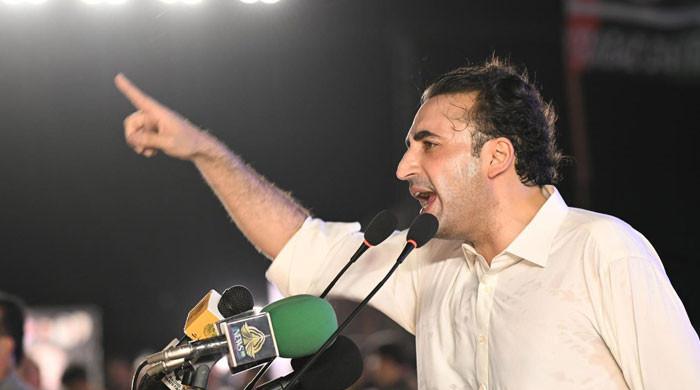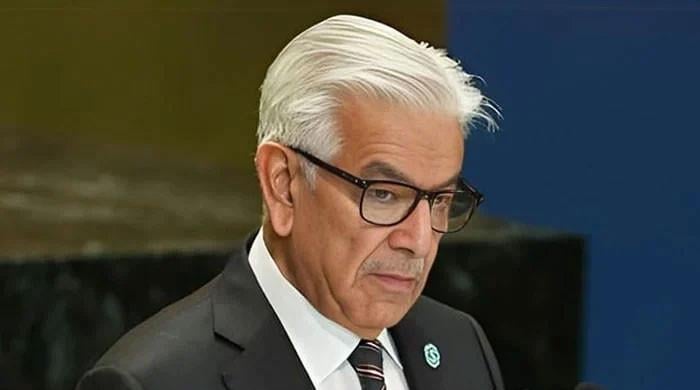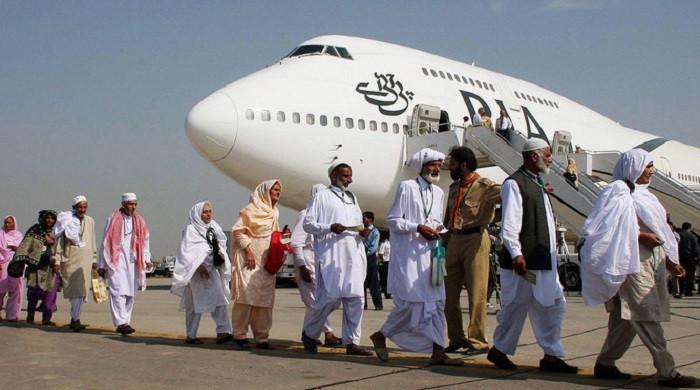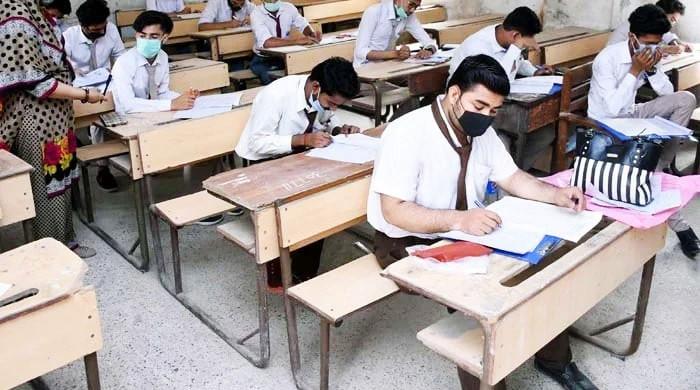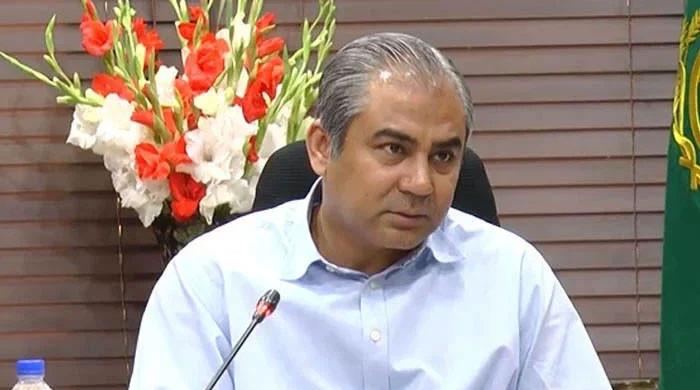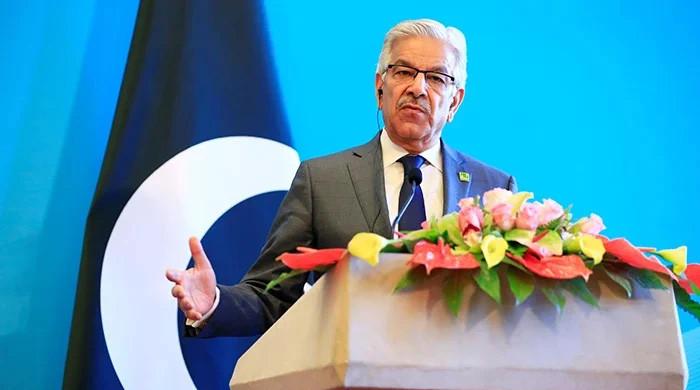'Matter of great concern': US opposes PML-N-led govt's plan to ban PTI
“We support democratic processes and broader principles including rule of law," says State Department spokesperson
July 16, 2024
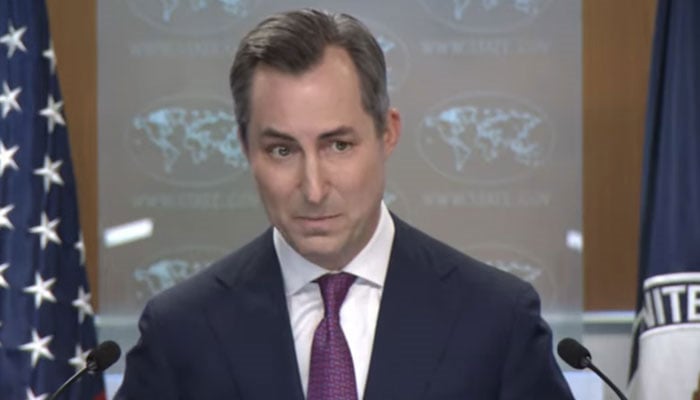
- It is "beginning of a complex process" in Pakistan: US.
- Says US supports peaceful upholding of Constitution.
- Govt plan draws widespread criticism from political arena.
Hours after the well in debate issue in Pakistan, the United States on Monday expressed concerns over the PML-N-led government’s surprise announcement that it is planning to impose a ban on its political rival PTI over its alleged involvement in anti-state activities.
Information Minister Attaullah Tarar earlier today announced that the federal government would file a reference against then-former prime minister Imran Khan, then-president Arif Alvi and then National Assembly deputy speaker Qasim Suri — for treason under Article 6 for dissolving the lower house of parliament in April 2022.
“This is a fact and on the record that the PTI has been involved in anti-state activities. And, to this end, the government and its allies have decided to initiate legal proceedings to ban the PTI under Article 17 of the Constitution which empowers the federal government to ban any such a party,” the information minister announced at a press conference in Islamabad.
Responding to a question during a daily press briefing, State Department Spokesperson Matthew Miller referred to the media reports and the Pakistani government’s announcement, saying the development "is a beginning of the complex process”.
“[…] certainly banning of the political party would be of great concern to us,” he added.
The spokesperson stressed his country supports the peaceful upholding of the country's Constitution and democratic principles including respect for human rights and freedom of expression.
“We support the democratic processes and broader principles including the rule of law and equal justice under the law and as these internal processes continue to play out we will monitor the further decisions,” Miller said.
The government's announcement drew severe criticism from several quarters including leaders of mainstream political parties.
The PTI, without naming the PML-N, demanded invoking Article 6 of the Constitution against those who undertook the unconstitutional steps in the country, calling on allies of the ruling coalition government to clear their position on the plan to ban the former ruling party.
Addressing a press conference in Islamabad on Monday, the party leadership also condemned the federal government's decision to ban the Imran Khan-founded party.
"We call on the PPP and the MQM-P to clarify their position as the ANP has already clarified its position on the issue," PTI Secretary General Omar Ayub said.
Speaking to Geo News, senior PTI leader Senator Ali Zafar said his party would not allow the decision's implementation "even for a second" as it is against the law of the land.
'Against all norms'
Similarly, Pakistan Peoples Party (PPP) leader Farhatullah Babar dubbed banning a political party "absurd", saying: "It is also rubbish to talk about launching a treason case against a political leader."
Senior PPP leader Raza Rabbani said the talk of banning a political party by the government "is against all the norms of democracy".
The step of banning a political party in Pakistan’s history has always been unsuccessful and has been thrown in the dustbin of history, he added.
Terming the government's move to ban the PTI "childish and injudicious", the Awami National Party (ANP) said the path of the political parties could not be choked with restrictions and hurdles, stressing: "Restrictions on the political parties and political process are not acceptable at any cost."
"Despite the political difference with the PTI, we believe the government's move would be a folly," the ANP central spokesman said while underscoring the need to identify people who kick up political instability and economic crunch in the country.
Coming down hard on the government's decision, Jamiat Ulema-e-Islam-Fazl (JUI-F) leader Hafiz Hamdullah raised multiple questions: "Can the decision bring about political and economic stability in the country? Will the decision cause the confrontation to spiral or scale down? What benefit will this decision offer to the public and the country? Does the government of Form 47 have the right to make such decisions?"
Apparently referring to the ban announcement, Jamiat Ulema-e-Islam Fazl (JUI-F) chief Maulana Fazlur Rehman said Pakistan will not be able to come out of the political crisis until the army detaches itself from the political affairs.
Highlighting the prevailing political crisis in the country, the JUI-F chief said: "The army will have to distance itself from politics in order to resolve the political crisis."
HRCP calls govt decision to ban PTI unconstitutional
The Human Rights Commission of Pakistan (HRCP) expressed shock over the government’s decision to ban the PTI. "Not only is this move in flagrant violation of party members’ right to association under Article 17 of the Constitution, but it is also an enormous blow to democratic norms, especially when the Supreme Court has unanimously ruled that the PTI is a political party," the rights watchdog said in a statement issued on X, formerly Twitter, on Monday.
"Moreover, such a move reeks of political desperation, given that it follows closely on the heels of the apex court’s ruling that has effectively made the PTI the single largest party in the National Assembly after making it eligible for reserved seats for women and minorities."
The HRCP demands the unconstitutional decision be withdrawn immediately, the human rights commission's statement said, adding that if pushed through, it would achieve nothing more than deeper polarisation and a strong likelihood of political chaos and violence.




